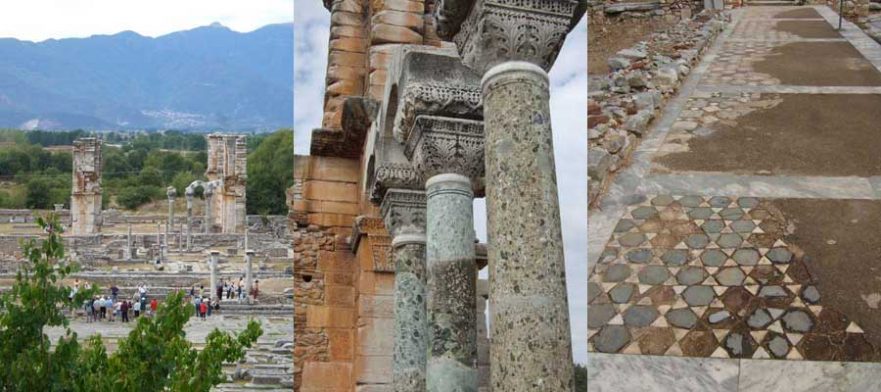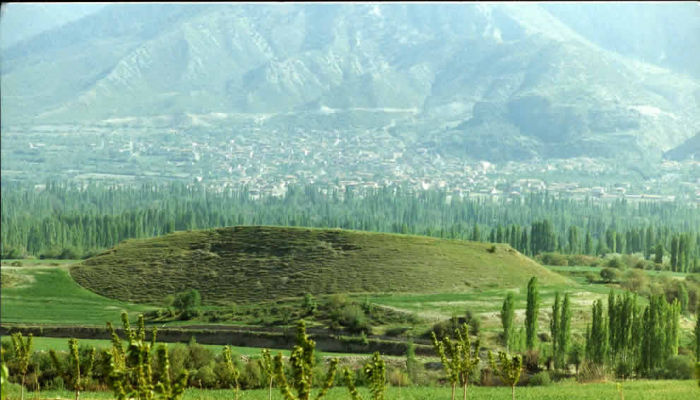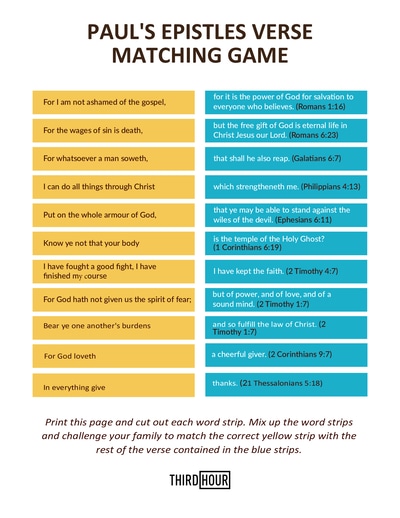“I Can Do All Things through Christ
Which Strengtheneth Me”
Paul’s (and Timothy’s) letter to the saints in Philippi in Greece was probably written around 62 A.D. from Rome. Philippi was the location of the first Christian congregation in Greece and it became an important center for Christianity. Because this epistle jumps from one subject to another, scholars think it may be a composite of several letters.

Conflict in the preaching of Christ’s gospel (Philippians 1):
Paul portrays several conflicts in Philippians 1. The first is the trials and afflictions he has suffered during his journeys and imprisonment. In verses 12 – 14, Paul testifies that everything he has gone through has borne witness of the Savior. The second is the controversy that accompanies the preaching of the word.
In verses 15 – 18, Paul talks about people who talk about the gospel in contentious ways and people who talk about the gospel to praise it. Paul’s reaction is almost like the saying from Hollywood, “All publicity is good publicity.” This would make a good discussion, since “anti-Mormons” have a strong presence on the internet and social media.
The third conflict is the conflict Paul feels within himself between remaining in mortality to do the work of Christ or to die and return to Him. Heaven sounds attractive, but there is still work for Paul to do on earth. This is a portent of Paul’s execution at the hands of the Romans, which finally occurred in 64 A.D.
Avoiding murmuring and contention (Philippians 2):
Again we see that Paul’s time in mortality is drawing to a close. He wishes he could make another trip to Philippi, where he established the church, but he feels he may have to send Timothy and even Epaphroditus, who has been seriously ill.
Paul encourages humility and warns against contention and murmuring. He uses Christ’s humility as an example—the Lord of all as the servant of all.
Be followers of Christ together (Philippians 3):
Paul refers to members of the church in Philippi who are secretly followers of the world and seek to undermine the work. It’s interesting to reflect on this situation from where we stand in our own time and culture. There are obviously many members of the Church who want to fashion it in their own image rather than humble themselves and walk in subservience to Christ’s commandments. These become angry and seek validation in recruiting others to their points of view.
Seeking after good things (Philippians 4):
Here is the source of our 13th Article of Faith—Philippians 4:8.
“Finally, brethren, whatsoever things are true are honest, whatsoever things are just, whatsoever things are pure, whatsoever things are lovely, whatsoever things are of good report; if there be any virtue, and if there be any praise, think on these things.”
The title of this lesson is found in verse 13: “I can do all things through Christ which strengtheneth me.” This sentence can be the topic of a good discussion. We wouldn’t use the word “which” to express the following: “I can do all things through Christ, who strengthens me.” But could this verse instead mean the following?: “I can do all things that strengthen me through Christ.”
All things were created through Christ (Colossians 1):

The Epistle to the Colossians was written for the saints in Colossae, which is in what is now Turkey. It may have been written by Paul and Timothy earlier than the Epistle to the Philippians, or later by one of his followers.
The verses on creation through Christ are exquisite:
For by him were all , that are in heaven, and that are in earth, visible and invisible, whether they be thrones, or dominions, or , or powers: all things were by him, and for him:
And he is before all things, and by him all things .
And he is the of the body, the church: who is the beginning, the from the dead; that in all things he might have the preeminence.
For it pleased the Father that in him should all dwell;
And, having made peace through the blood of his cross, by him to all things unto himself; by him, I say, whether they be things in earth, or things in heaven (vs 16 – 20).
Be not deceived by the traditions of men (Colossians 2):
Again, Paul warns against the philosophies of the world that lay a snare for the true believers in Christ. There are also a couple of hidden verses in Colossians 2 that refer to the traditions of the Jews:
Let no man therefore you in , or in drink, or in respect of an holyday, or of the new moon, or of the days:
Which are a of things to come; but the body is of Christ (vs 16, 17).
The Jewish converts should not be judging the Gentile converts for not observing the Jewish holy days. Notice that Paul calls these holy days (all of which were commanded during the Israelites’ exodus from Egypt) “a shadow of things to come.” All the symbols of these holy days testify of Christ.
Becoming a new person in Christ (Colossians 3):
Imagine if everyone you knew in the Church was a convert to the faith. Everyone had repented of an old lifestyle that included the various sins that the world tends to accept. This is the way it was when Christianity was first taken to the world. Each person who joined the Church had to become a new creature in Christ, desiring to be harmless and to do good always.
Missionaries have seen this transition in new converts and rejoiced at the changes that occur.
Luke and others send greetings to the Colossians (Colossians 4):
Paul was able to have visitors while he was under house arrest in Rome, and Peter was arrested too. Paul sends greetings from other servants of Christ to the Colossians.
Lesson Resources:
churchofjesuschrist.org — Come Follow Me


